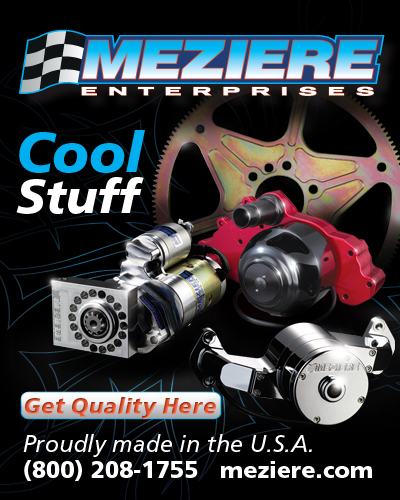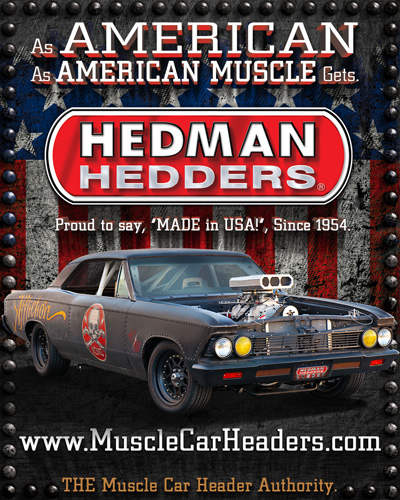WARREN JOHNSON DELIVERS STATE OF PRO STOCK ADDRESS
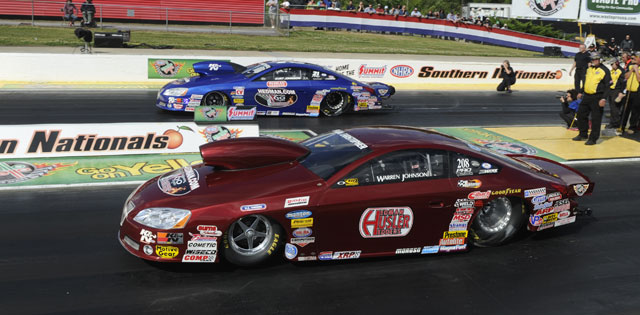 NHRA Photo
NHRA Photo
LESSONS FROM THE PROFESSOR ...
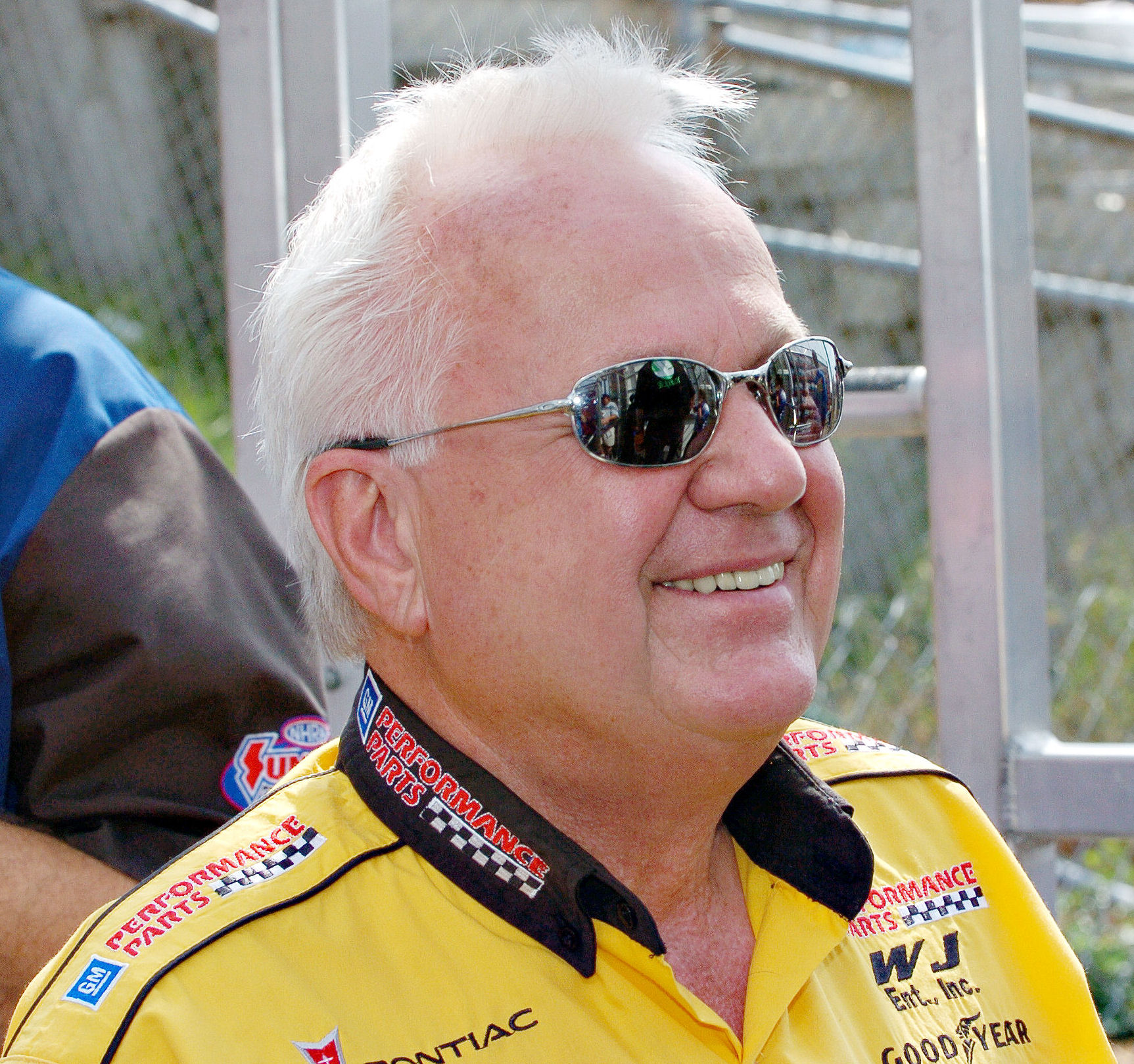
"There was never a chip on my shoulder to prove to anybody— . . . There was nothing I needed to prove. All I needed to do was make a living at it. I never looked at any of the other competitors [with] envy or intimidation or anything like that. I was just single-focused on winning races. I never 'beat' anybody. I was just able to win races. That's the way I always looked at it. When you look at 'beating somebody,' you're taking tat on a personal term, and you've obviously lost your focus."
WHETHER THE FACTORY SHOWDOWN CARS WILL USHER IN A NEW ERA OF PRO STOCK
"Only the spectator can determine that. If there's interest from the spectator side, certainly there'll be an interest from the competitor side. But I can tell you [fans] are not going to go watch an eight- or nine-second car when they've been watching middle-six-second cars for the last five years, 10 years. The spectator is the one that's going to determine if these factory-built cars are going to be acceptable. [Can the NHRA turn to that?] Not from an entertainment [angle], no, not if you’re selling it as the same category. . . . The sanctioning body is swayed by the manufacturer's input. Pro Stock, supposedly, is the only manufacturers' representative car. Affiliation with the factory is what's going to determine where Pro Stock is going to go. I highly doubt you're going to see 500-cubic-inches much beyond five years."
OF THE DODGE BOYS DOMINATION, HIS RELATIONSHIPS WITH ALDERMAN AND GEOFFRION, DEALING WITH CHEATING IN PRO STOCK
"That was a little bump in the road. We knew what was going on, and it was a matter of us proving it at the time. The bump in the road lasted only a few years, then Chrysler dropped out of it until they developed the new Hemi . . . in the early 2000s. I would say there was more of an intense rivalry between Glidden and myself than the Dodges and myself. The Dodges, in their early form, didn't last that long. When I look at what their shenanigans cost me financially, that was the part that was most annoying." Had [Scott Geoffrion and Darrell Alderman] not been there, Pro Stock racing might not have been exciting. Even though I didn’t particularly enjoy that whole period of time, it probably did drag racing some good. I look at the sport overall, not just for my own personal gain. If the sport didn’t survive, I couldn't have survived at that time. It's just one of those things. You have to grin and bear it."
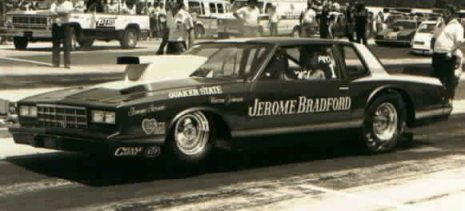 TODAY'S PRO STOCK DRIVERS
TODAY'S PRO STOCK DRIVERS
"You can't say 'personalities' anymore, because they're all homogenized. They all read the same book on etiquette."
INTERNET AND SUCH RESOURCES AS WIKKIPEDIA
" . . . namby-pamby stuff . . ."
ENTERTAINMENT ASPECT OF DRAG RACING AND MEDIA HYPE
"Early on in racing, I was doing it to make a living. It didn’t take me long to figure out that this is nothing but entertainment. It's big-time auto-wrestling. This supposed battle between [Bob] Glidden and myself . . . Both Glidden and I were trying to make a living. So it was two dogs trying to get the same bone at every race. Yeah, we were fiercely competitive. It's not that we disliked each other. When you make your living at it, starving to death was not an option. We were fiercely competitive. I don’t think we spoke 10 words in 20 years."
THE DRIVING ASPECT OF BEING A PROFESSIONAL DRIVER
"The car-handling part of it, that came natural to me, because when I was a kid, we used to race on ice and snow. That's probably why I made a lot more successful passes under less-than-ideal conditions than most people. My son, Kurt crashed a couple of cars because he never had that experience. I sent him to [Bob] Bondurant's school in Phoenix. And he was amazed at what car control was all about."
HIS GM SPONSORSHIP
"The sponsorship money was decent. It wasn't as great as everybody thought it was. But it was enough that I could afford to invest in my operation. I had multi-year contracts every year so that I could forecast what I had the potential of doing, based on the amount of money I was going to receive and hopefully being successful at races to augment that income. It was a lucrative business for me, and it lasted 25 years. It worked out well for me. I had a lot of opportunities intertwined with GM engineers over certain projects, outside of the drag-racing program even, and that is the part that really interested me. I had the opportunity to design the DRC 1,2, and 3, and that was part of my program. I had to supply so-many engineering hours to GM."
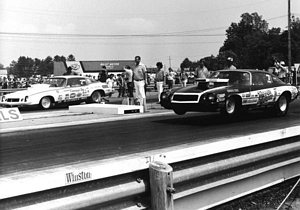 GM'S LS SERIES TECHNOLOGY
GM'S LS SERIES TECHNOLOGY
"It's really the best platform GM has now, for the street applications, for sure. With aftermarket fuel-injection companies making the EFI really so simple and self-learning, you can build a late-model, fuel-injected, 7-800-horsepower, totally street-drivable engine out of one of these things. And because it's an all-aluminum construction, they're averaging 385 pounds with oil in them, ready to run, as opposed to 500-plus pounds for your old cast-iron small block. So it’s a great platform, both for racing and for street application. They're pretty foolproof to build."
BIG DADDY'S ELECTRIC POWERED DRAGSTER
"That's highly interesting. I don’t think other than if they had a bunch of flame-throwers and boom-boxes on it, it'd do very much for entertainment, as far as crowds are concerned. But at the same time, there's a lot of technology involved. That, to me, is exciting [as well as] running in the 6s with that thing. . . . It'd be just another form of advertising for electric vehicles."
WHETHER HE FOLLOWS OTHER FORMS OF RACING
"There is a little bit of information that can be learned from every form of motorsports if you can keep your finger on it. There's a lot of technology that can be applied across motorsports, because they're all rods pistons, and valves, as far as the powerplant is concerned." - SUSAN WADE THE JOE CASTELLO INTERVIEW WITH WARREN JOHNSON
Dr. Zook's one-question final exam in the relativistic physics course required no more than five sheets of legal-sized paper, a slide rule, a pencil, and a decent handle on calculus.
That sounds tidy. But only two of 139 students tested that day at the University of Minnesota passed. One of them was Warren Johnson.
"He hammered the idea that to solve a problem, you have to understand the problem," Johnson said of his instructor. That made sense to Johnson. And the farm kid from near Virginia, Minn., who was studying while building engines for boat, circle-track, road, and drag racing on the side, figured he was equipped to take his intellect into the world and make a living.
And long before he earned two International Hot Rod Association series titles (1979-80) and 13 Ironman trophies, long before he recorded 97 National Hot Rod Association Pro Stock victories, Johnson became drag racing's "Professor of Pro Stock."
As his induction into the Motorsports Hall of Fame of America this June draws closer, Johnson might not give out many passing grades, either, in certain areas of the sport today. In his recent conversation with WFO Radio's Joe Castello, an interview available through CompetitionPlus.com, Johnson wasn't bashful about assessing and solving problems.
He didn’t have to bring his slide rule or pencil to Castello's interview to answer the question about what effect today's uniform bodies are having on the Pro Stock class.
"The vehicle appearances are just a result of the NHRA trying to make every vehicle equal," Johnson said. "As soon as you start doing that . . . NASCAR went through that with its COT a few years ago – a lot of people lost interest, because they're all the same, just a different decal on the front. People go to the racetrack to root for the particular brand or the driver. Those are the two reasons they're there. When you lose one of those, you've lost 50 percent of your audience, as far as interest. They still may attend, but not with the same enthusiasm they had before. So I'm not really a fan of these cars all looking the same.
"They're building a box," Johnson said. "It's 65 inches wide, 105-inch wheelbase, and 42 inches tall. They're losing their character.
He said, "I don’t see anything outstanding about it, any of the categories anymore."
One thing he applauded was Erica Enders-Stevens' 2014 Pro Stock championship. He said he thought that gave the sport a much-needed boost but expressed concern about whether the class can sustain the interest or what it might do for an encore.
"Erica winning the championship last year was a great thing, especially in the fashion she won it, going down to the final run of the year. That added a lot of appeal for the sport again," Johnson said.
"Now, whether it can carry over by bringing in some 18-year-old with a couple million dollars sticking out of every pocket because his dad's got a lot of money or something like that, that doesn’t bring anything to the sport. Yeah, it brings another competitor, but it doesn't add to the base of the sport, because they're here today, gone tomorrow. There's no duration. That doesn’t build the sport," he said.
"Part of it is that they can't make any money anymore," Johnson said. They've got to be self-funded completely. . . . There is no financial return on it from the sanctioning body. You're talking about maybe $25,000 or $30,000 is the most you could make off a race nowadays. And you spend that much in just parts attrition over a weekend."
That's compared to his early days in the sport, when, Johnson said, "if you worked with manufacturers and the contingency program, you could make somewhere around $40,000 a race just in contingency [payouts], as opposed to the $5,800 you can get today after NHRA has run all the manufacturers off.
"Then," he said, "when you include half the day's involved in oildowns, that doesn't help the sport."
He's not especially impressed with the current trend of only a few engine suppliers catering to the entire Pro Stock class.
"You have to understand how it was achieved in the first place. It was achieved by just a couple of guys working at multiple shops, gathering information from what everybody has done, then taking that information and applying it to their particular program. That's really what has happened. You just had a couple of moles out there, gathering information for the last 10 years, and they've been able to put this all together. They're all running exactly the same, so let's face it: they've got exactly the same information. These few shops that have gotten where they are have been robbing information from each other for 10 years," Johnson said.
"There's no new thought process involved. It's just that it’s taken 10 years. They don’t want to have anything new, because they don’t know anything new. They just know what they've got and how to pick at it a little here, a little there," he said. "They'd have to start a development program, not that they couldn’t do it. But it wouldn’t happen overnight."
Maybe the grand question is "WWWJD – What Would Warren Johnson Do?" if he got to spearhead changes with the sport's largest sanctioning body?
"I can't say I've thought it ALL the way through," Johnson said, "but as someone who has participated in this sport for a few years . . . We obviously have a problem. I've got nothing against NHRA itself, but when you’re not getting any results, the first thing you do is fire the people that aren't getting you the results and bring in a new management team that knows how to promote. You don’t have bean-counters masquerading as promoters. That's what it takes to get any sport going – a promoter, not a bean-counter."
Many have wondered if they'll ever see Warren Johnson and son Kurt Johnson competing again on a fulltime basis.
"If it’s financially worthwhile to me, yeah," the elder Johnson, now 71 years old, said. "If there's enough sponsor support to warrant some more racing, yeah, fine, you'll see Kurt and myself out there.
"We're actively seeking sponsor support. We've been doing that since 2009. At the same time, we want to make sure it’s at the level that we can be competitive. I don’t want to go out there just to go out there," he said. "If I'm going out there to win, I'm going out there to whip everybody's ass."
And if anybody doesn’t like that, he can blame Dr. Zook, who surely would be proud of Warren Johnson today.
The act of cutting and pasting articles from this publication to a message board is a clear copyright violation as is pulling photos to post on social media sites. All articles and photography published in CompetitionPlus.com are protected by United States of America and International copyright laws unless mentioned otherwise. The content on this website is intended for the private use of the reader and may not be published or reposted in any form without the prior written consent of CompetitionPlus.com.



























